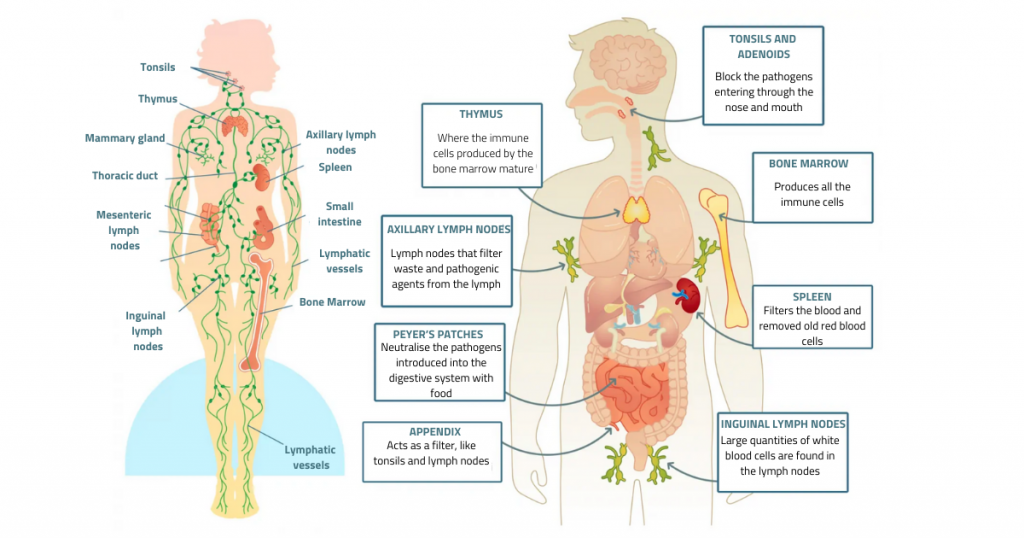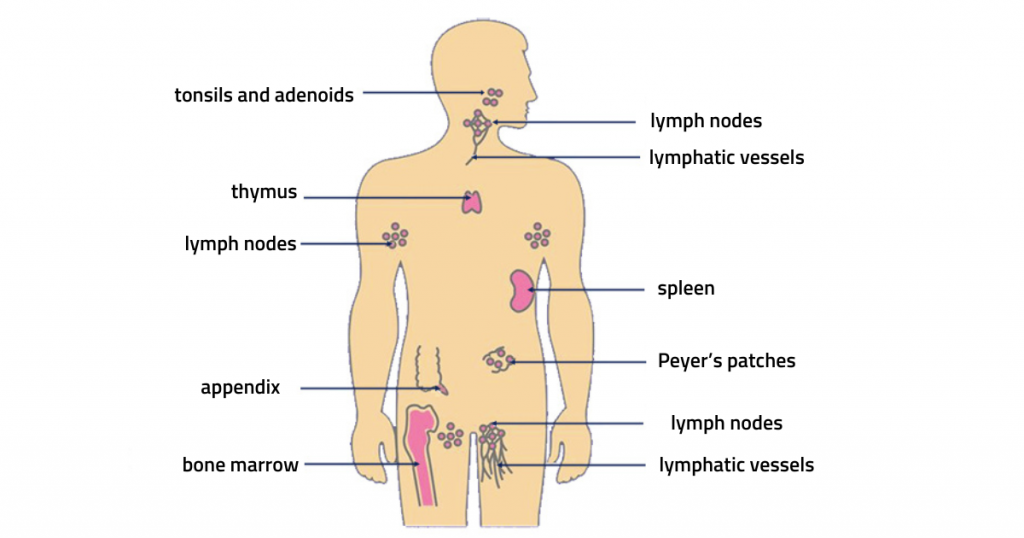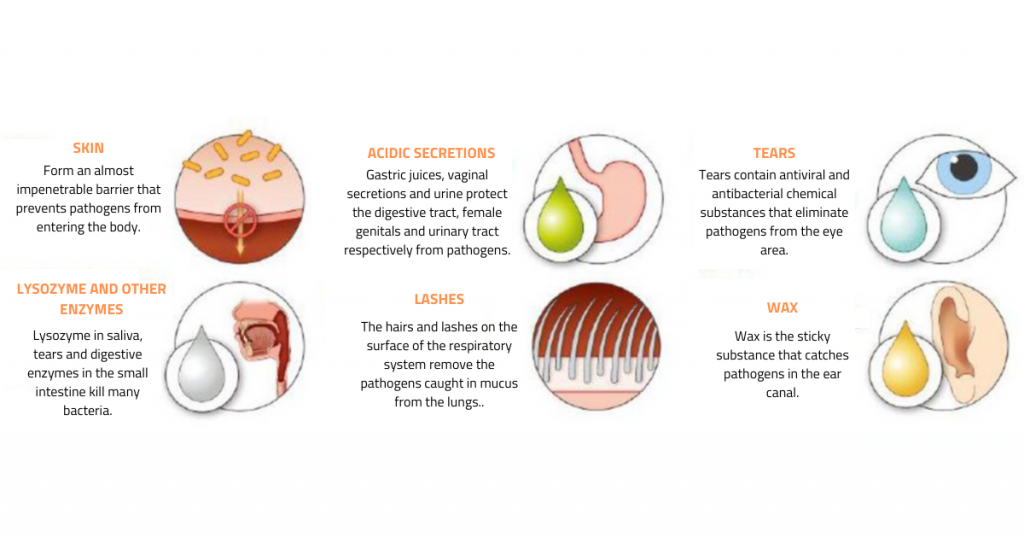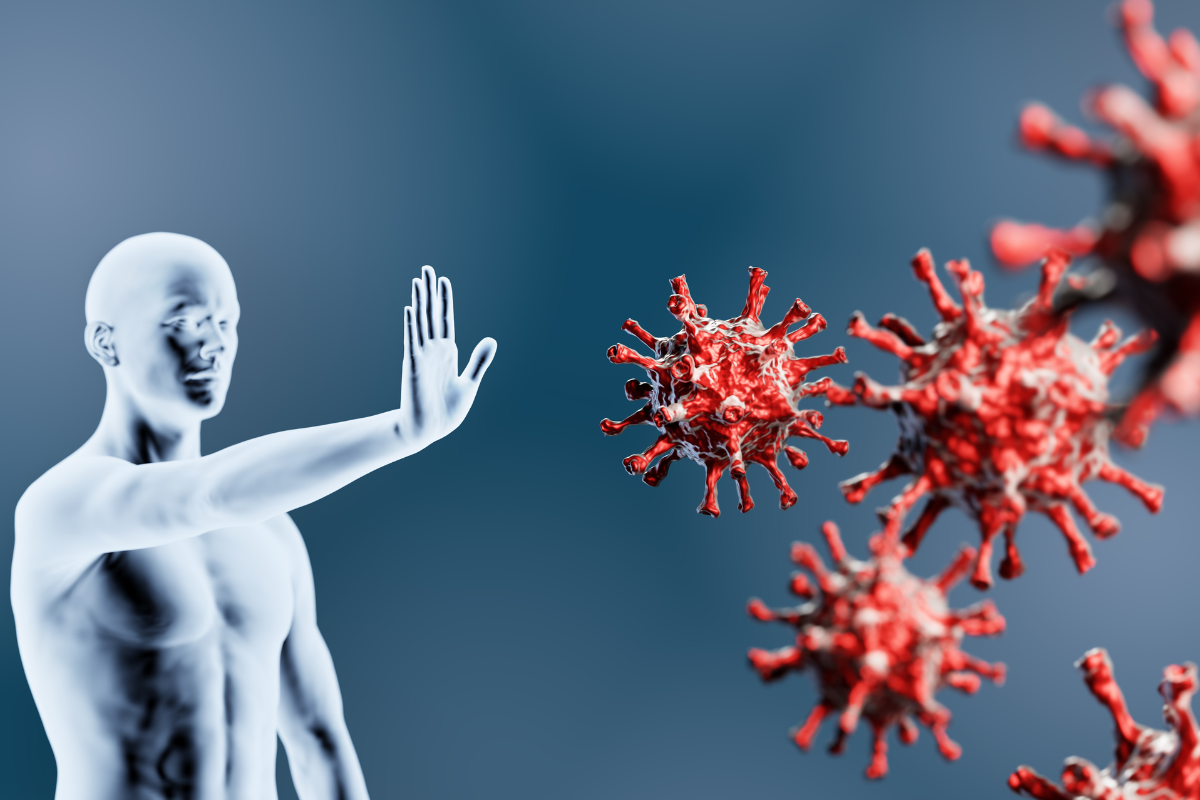The immune system fights infections and diseases, producing what is known as an immune response. It consists of a set of tissues, chemical and physical structures, organs and cells which defend the organism, and it is therefore indispensable for combating viruses, bacteria and foreign pathogenic agents
The immune system acts by:
- Recognising anything that shouldn’t be in the body
- Ordering the immune cells to act where there is a problem
- Attacking and eliminating foreign agents
What the immune system is composed of

All the components of the immune system are connected through the lymphatic system, located in various parts of the body and acting in synergy to defend the organism and keep it healthy.
Specifically, the immune system is composed of:
- The lymphatic system, composed of a network of vessels that expel germs and dead cells and tissues from the organism through a fluid called lymph. Lymph passes through specific collection points the size of a pea, called lymph nodes. When there is an infection, the lymph nodes often react by swelling. For instance, a throat infection can cause the lymph nodes in the neck to swell.
- White blood cells, also known as leukocytes. These move through the bloodstream to find and fight germs and other problems. Once they have fought and destroyed an antigen, they are usually able to remember it. If the white blood cells can remember that particular antigen, the next time it appears in the body they will fight it more quickly.
- Organs, including bone marrow (which produces all the immune cells), thymus (a gland where the immune cells mature), and secondary lymphatic organs (spleen, tonsils, adenoids and Peyer’s patches)
The chemical and physical barriers of the immune system

The immune system is much more complex and widespread than we might think: organs and tissues are not enough to defend the body from external aggression, chemical and physical barriers are also needed. Let’s see what these are:
- Skin: the skin forms an almost impenetrable barrier that prevents pathogens from entering and protects the body from chemical and physical attacks, while acid pH and sebum offer additional defence.
- Mucosa: present in many parts of the respiratory, digestive, genital and urinary system, physically and chemically preventing pathogens from entering.
- Mucus: the mucus in the respiratory system catches inhaled germs and dust particles.
- Gastric juices: highly acidic, these sterilise food, killing almost all the pathogens ingested.
- Tears: contain chemical and antibacterial substances that eliminate foreign bodies from the eyes.
- Wax: being sticky, it catches and helps to expel any bacteria in the ear canal.
- Eyelashes and nose hairs: catch and remove foreign particles from the eyes and respiratory tract.

Supplements for strengthening the immune system
The basic rules for ensuring the correct functioning of the immune system are those adopted for a healthy, active lifestyle:
- A balanced diet rich in vitamins and minerals
- Physical activity
- Regular sleep
- Avoiding alcohol and nicotine
If the immune system has a deficit and cannot meet the body’s needs, recourse can be made to nutritional supplements with an immunomodulating action.
ApportAL® and ApportAL® Vital are nutritional supplements containing vitamins and minerals that help to strengthen the immune defences, restoring the body’s normal physiological balance.
Image sources:






